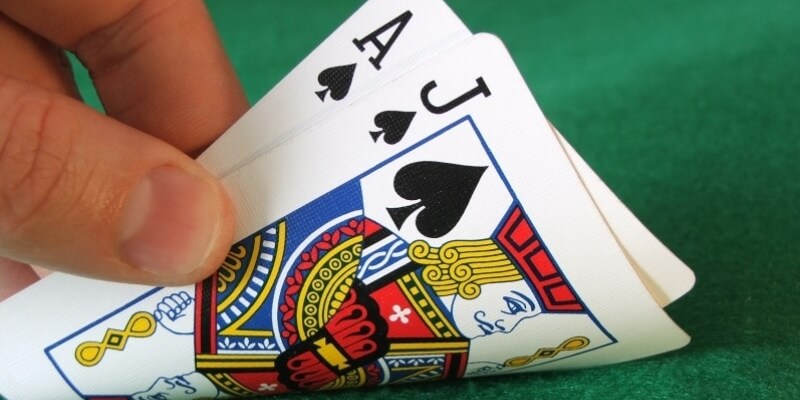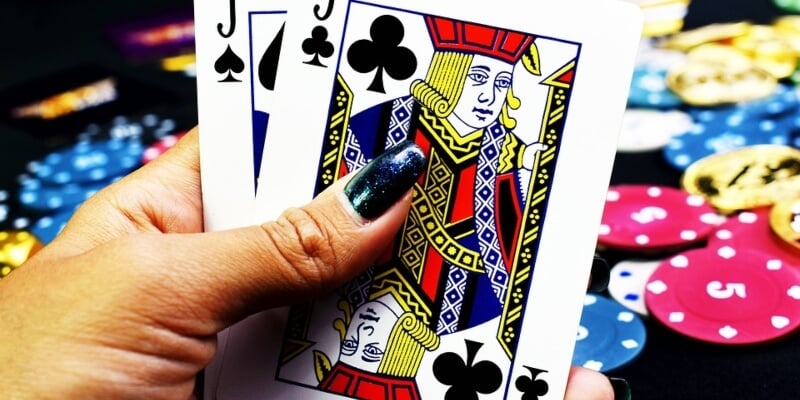What Is Soft 17 in Online Blackjack?

Any discussion of soft 17 in online blackjack needs to start with the basic blackjack concept of soft hands and hard hands. At its simplest, online blackjack is a comparing game between the dealer and any individual player. Both start with a two-card hand. Then, whichever has the higher points total wins – provided they can keep their own total to 21 or less. Scoring 22 or more is an automatic bust – and so you lose the game.
The cards 2, 3, 4, 5, 6, 7, 8, 9, and 10 all score according to their ‘face’ value. But each and every Jack, Queen, and King are worth 10 points apiece. The one exception here is the Ace card: Sometimes it is scored as one (its face value) in online blackjack, but sometimes it can be scored as 11.
If you hold a hand without any Aces, you have a ‘hard’ total. So it is scored simply by adding up the card points – e.g. if you hold a Queen and a 4, your total is a hard 14. However, if you’re dealt an Ace and a 4, then you hold a ‘soft’ total of 15 (11 +4) because your Ace card is scored as 11. But if you then hit and are dealt a 10 card, you then have a hard 15, because you then score your cards as (1 + 4 + 10). Note that if you count the Ace as 11 in this hand, you will go ‘bust’ with a total of 25 (11 + 4 + 10). Therefore any hand where you count your Ace as 1 to avoid going bust is described as a hard hand.
When a player is in possession of a soft hand, it changes your strategic options. You are less likely to go bust and exceed 21, so in these circumstances, you should press home the advantage you have been dealt and play a soft hand more aggressively.
But when blackjack players mention a soft 17 “rule” in blackjack strategy, they are actually talking about how the dealer must play his hand.
The house edge and how it affects soft 17 decisions
The house edge is an approximate percentage which represents the theoretical average amount an online casino will win from you if you played continuously forever. All such statistics are a mathematical average which will always apply if you play enough online blackjack games. So if the game information advises it has a house edge of 0.56%, that means on average that, for every bet of $100 the house is likely to win back 56 cents each time. So even if you win $150 on your first and third bets, if you were to keep playing online blackjack in New Zealand, over the longer term you would end up with the losing margin quoted.
Using the house edge percentage, you can calculate how much you could expect to lose on average for each hour of gameplay. If you played 60 hands every hour, and bet an average of $15 with a house edge of 0.56%, you would lose: $15 per hand x 60 hands x 0.56% = $5.04 for every hour you play.
But blackjack players know that if a casino changes the game rules, in particular, the rules about the dealer hitting or standing on a soft 17, it will have an impact on the house edge. For instance, if the dealer always hits on a soft 17, the house edge increases by 0.2%. So if the house edge becomes 0.76%, the result of the above calculation above increases to $6.84. That’s an increase of $1.80 every hour.
However, many blackjack players believe this rule helps the player more than the dealer because it increases the likelihood the dealer will go bust more often.

The Dealer’s Rules when playing online blackjack
How you play your blackjack hand is always up to you. So whether or not it’s the best winning strategy, you’re still the one that decides. But that’s not the same for the dealer. The dealer is obliged to follow certain casino rules. And one of those concerns what the dealer must do with a dealer hand totalling 17. In most casino games, most of the time, the dealer hits on 16 or below and will always stand on 17. This gives the player an advantage. However, some online casinos insist the dealer hits on a dealer hand of soft 17. In effect, this increases the house edge, and so is less beneficial to the player.
Variations for games of single-deck blackjack and double-deck blackjack
From a mathematical point of view, a player’s advantage also changes according to whether the game is single-deck blackjack or double-deck blackjack. So when playing a single-deck game, the player should hit soft 17 when the dealer’s upcard is valued from 7 through to an Ace. But in the double-deck game, the player should hit soft 17 when the dealer’s upcard turns out to be a 2, or again when it is valued from 7 through to an Ace.

